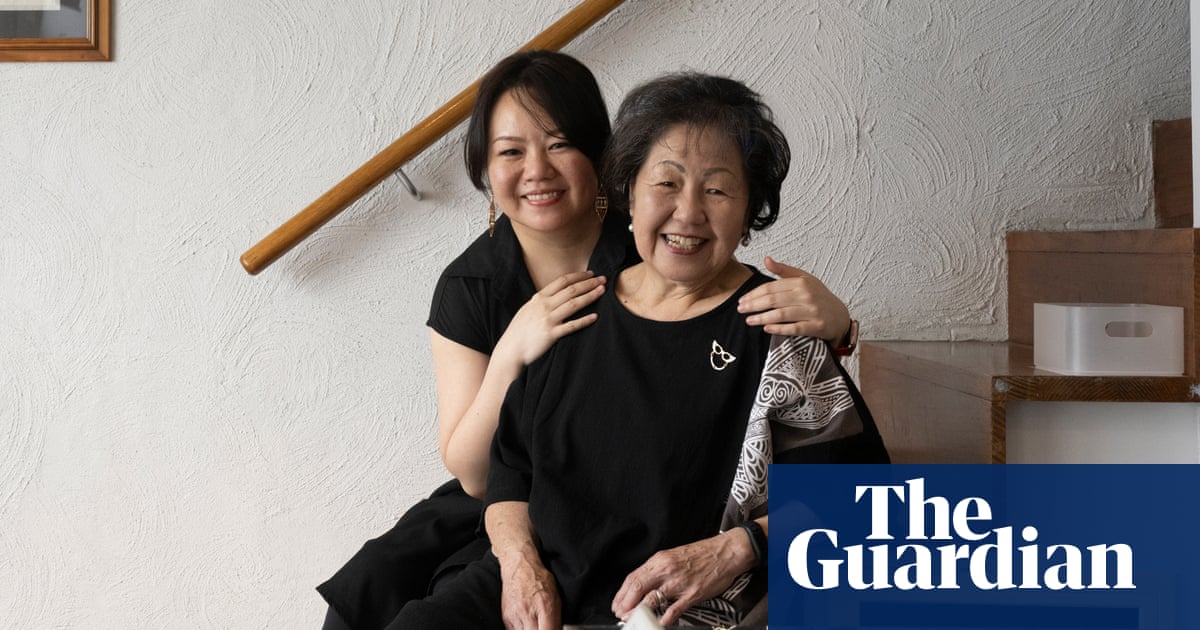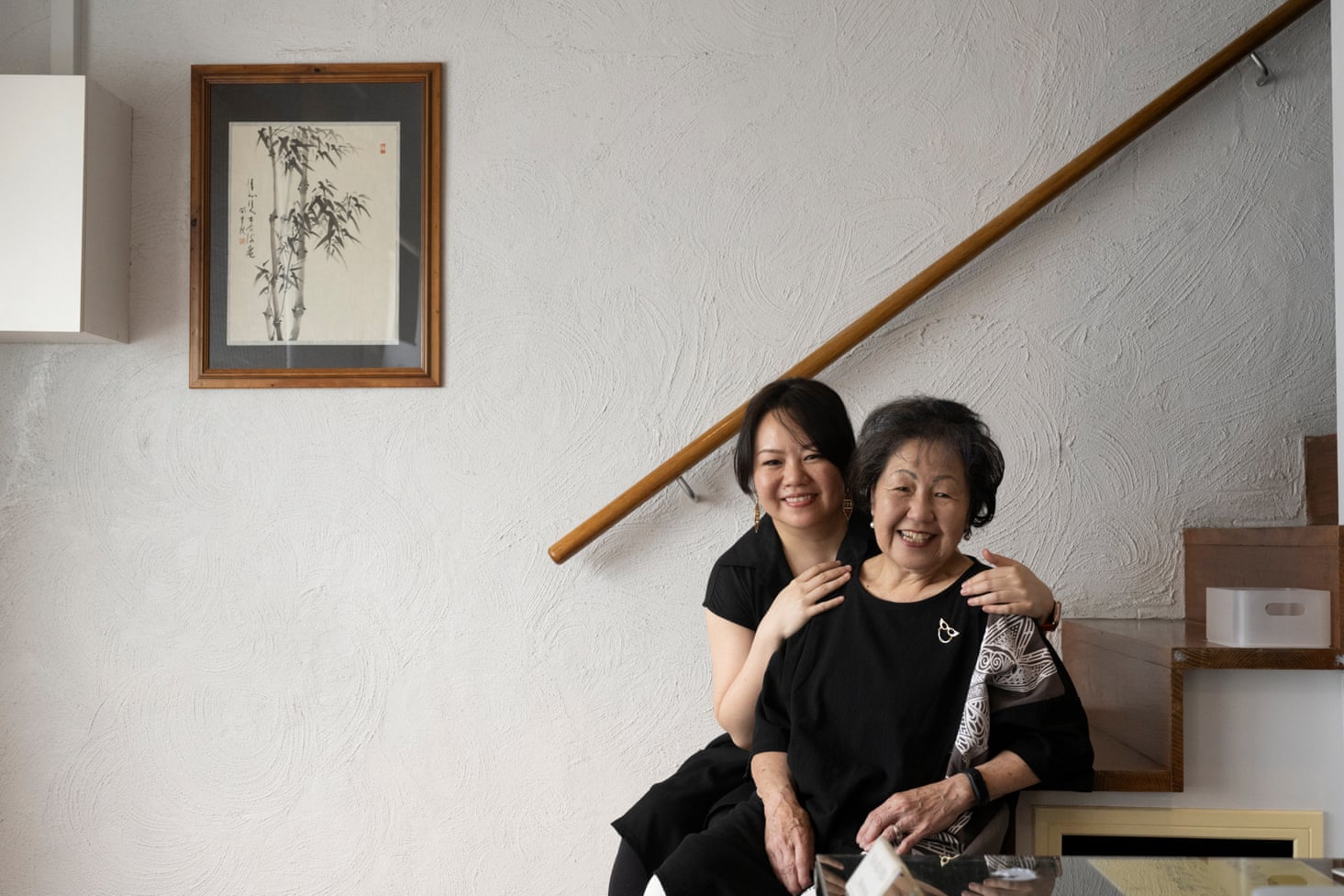
This family introduced Melbourne to Japanese nude public baths. Was Australia ever ready for it?
Hiromi Masuoka was told Australians would not cope with ‘the nudity aspect’ of communal bathing. She was determined to stay true to tradition
This family introduced Melbourne to Japanese nude public baths. Was Australia ever ready for it?
Hiromi Masuoka was told Australians would not cope with ‘the nudity aspect’ of communal bathing. She was determined to stay true to tradition
James Norman
@jamescnorman
Wed 27 Dec 2023 09.00 EST

Hiromi Masuoka (right) and daughter Mocca at Ofuroya in Collingwood, Melbourne. The Japanese bathhouse will shut its doors on 30 December. Photograph: Christopher Hopkins/The Guardian
Hiromi Masuoka, 78, recalls when she opened Australia’s first traditional Japanese bathhouse down a narrow Collingwood backstreet in 1998, her friends tried to talk her out of it. “I remember all my friends at the time telling me that it couldn’t work here – that Australians would not cope well with the nudity aspect,” she says.
“But for me that was just completely natural and the only way to keep it really true to the Japanese bathing tradition of purity and cleanliness.”
After 25 years of running Ofuroya with her daughter Mocca, the much-loved inner- Melbourne sanctuary is closing this week, citing the effect of Covid lockdowns, onerous council access regulations on the three-storey property and the cost of needed renovations.

Hiromi Masuoka introduced Australia to the Japanese tradition of nude communal bathing when she opened Ofuroya in Collingwood 25 years ago. Photograph: Christopher Hopkins/The Guardian
“There are many reasons for closing – partly just the costs required to renovate but also that there were so many restrictions and regulations being placed on us here it’s no longer viable,” she says, noting that they didn’t want to sell the business because they couldn’t be sure it would be run in the traditional Japanese style.
“It is so important to us that it was done in a traditional way – and I couldn’t be sure of that with a new owner – so we decided to close the whole business down.”
When I visit on a warm Thursday afternoon the place is bustling with regulars and new customers keen to experience it before it closes for good. The baths are divided into men’s and women’s areas in which patrons first undress completely, place their clothes into a wooden box and enter the tiled washing room – a series of shower heads along a wall where visitors sit and scrub every part of their body clean.
Once fully washed, I get in a dry sauna. Then, after a shower to wash off the sweat, it’s time to soak in the actual bath, which is set at 40C and at a depth that comes up to my neck. There are signs on the walls asking people to only whisper if they need to talk so as not to disturb others and that any sexual activity will result in a permanent ban.
There are several schools of thought on the origin of Japanese bathing but it is generally agreed they date back to the sixth century, when they were part of Buddhist purification rituals, believed to cleanse the body and spirit through heat and steam. Being naked is part of the purification, as a freshly washed naked body won’t contaminate the bath water.

James Norman relaxes in the communal public bath at Ofuroya. Photograph: Christopher Hopkins/The Guardian
It is a tradition that carries on to this day in Japan – where onsens (natural outdoor bathing pools) and sentos (public baths) are found in most towns and cities, also functioning as community meeting places.
Sipping a green tea in the tatami room on the first floor of the bathhouse, Mocca Masuoka, who has been managing the sento since her mother retired seven years ago, says she still gets some visitors who question why they need to be naked.

The water at Ofuroya is kept at 40C. Photograph: Christopher Hopkins/The Guardian
“Some people come in and say, ‘Oh, I brought my bathers or my thongs with me’. So we just have to tell people none of those are allowed here.”
To address this, Mocca started emailing people before they come to tell them exactly what to expect – and why nakedness is an essential element of the experience.
“When you’re nude, it doesn’t matter where you come from and it doesn’t matter what job you have or how much money you make,” she says. “The act of just stripping off and scrubbing – it’s like a universal relaxation.

‘This place has been my life’s work,’ says Hiromi Masuoka, who has run the bathhouse with daughter Mocca. Photograph: Christopher Hopkins/The Guardian
“Despite whatever hierarchies you might be part of in your life – when you’re here, you’re just one butt-naked person having a bath.”
Daniel Frigo, a Collingwood business owner who has been visiting Ofuroya for more than 15 years, says the thing he will miss most about the bathhouse is the energy of its owners and the community that formed around it.
“I am from an Italian background, so I guess we are more used to nudity – from all our naked statues to nude bathing on European beaches,” he says.
“I think that part took some adjustment for Australians who are used to a more modest culture around nudity. But once you get used to that, I think everyone just loves the uniqueness of experiencing traditional bathing culture in downtown Collingwood.”
Reflecting on the closure, Hiromi says when she first opened the bathhouse many people assumed it must have been a brothel. “There were definitely some problems at the start,” she says. “People rocking up and asking where the girls are or even someone calling up and asking how much for a blowjob – I didn’t even know what that was!”
After 25 years of endless cleaning and trudging up and down the narrow stairways, Hiromi says it is time to move on, despite feeling a degree of sadness. “This place has been my life’s work – so of course I am sad to see it go,” she says.

The tatami mats in the lounge at Ofuroya. Photograph: Christopher Hopkins/The Guardian
“But on the other hand I am delighted because I feel that despite the challenges of getting Australians to embrace Japanese nude bathing culture – it has worked. We’ve remained in business for 25 years and built a loyal community. That feels like a real achievement.”
Other bathing experiences around Australia
Enjoy a Finnish sauna and gin lonkero in Altona, VictoriaThe Finnish Society of Melbourne offers a traditional Finnish sauna (also naked for “hygiene” reasons) that includes the option of sipping a gin lonkero (long drink) afterwards.
Bring a Nordic sauna and ice bath to your home in WA
Löyly is a Finnish word for the steam that is created as water evaporates in a sauna but it has a deeper meaning – the spirit of life. Callum Potton, the owner of Löyly mobile saunas, says he is on a mission to revolutionise access to Nordic sauna therapy by bringing the contrast of the dry sauna and ice-cold pool to people’s homes, workplaces and festivals.
Free outdoor bathing at hot springs in Queensland
Nestled in far north Queensland’s Tablelands region, the Innot Hot Springs are natural geothermal pools. Visitors are advised to exercise caution as the mineral-rich water that bubbles out of Nettle Creek can reach high temperatures.
The women’s only Moroccan Hammam in Parramatta, NSW
Claiming to be the first of its type in Australia, the Moroccan Hammam offers a safe, women’s only health spa with a mix of traditional Moroccan and modern spa treatments, including a body scrub using Moroccan kees (loofah scrubbing brushes).